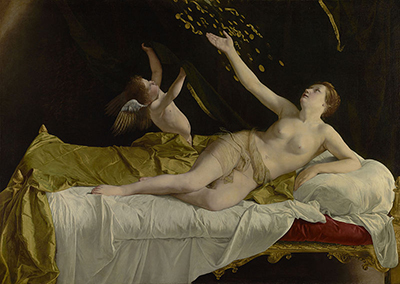by Mike Maloney

Chapter Two:
The wealth of nations
In studying monetary history to identify cycles, it is necessary to examine both sides of the coin so to speak. The temptation is for people to blame all their woes on their government. Certainly governments are often at fault when it comes to inflation through fiat monetary policy, but one must never forget that in the end we are ultimately the ones who consent to our government’s rule. History is full of examples of greed leading a populace to do incredibly stupid things. Indeed, we don’t need government to ruin our economy. We can get by just fine by ourselves, thank you.
The best example I can think of is the tulip mania of 1637.
A tulip is still a tulip…
In order to understand the absurdity of this moment in history I’m about to share with you, you simply have to ask yourself: Would I pay $1.8 million for a tulip bulb? If the answer to that question is yes, then please put this book down and get some professional help. Otherwise, read on and see just how crazy the public can become.
Everyone thinks of tulips when they think of Holland. Then they think of beer. What many people don’t know is that tulips are not indigenous to Holland. They were imported. In 1593 the first tulip bulbs were brought from Turkey to Holland. They quickly became a status symbol for royalty and the wealthy. This developed into a mania, and soon a tulip exchange was established in Amsterdam.
Very quickly this mania turned into an economic bubble. You may find this comical; in 1636 a single tulip bulb of the Viceroy variety was traded for the following: 2 lasts (a last is 4,000 pounds) of wheat, 4 lasts of rye, 4 fat oxen, 8 fat swine, 12 fat sheep, 2 hogsheads (140 gallon wooden barrel) of wine, 4 tons of beer, 2 tons of butter, 1,000 pounds of cheese, 1 bed, 1 suit of clothes, and 1 silver goblet.
At its very peak in 1637 a single bulb of the Semper Augustus variety was sold for 6,000 florins. The average yearly wage in Holland at the time was 150 florins. That means that tulip bulbs were selling for 40 times the average Hollander’s annual income. To put that into perspective, let’s assume the average U.S. salary is $45,000. That means that a tulip bulb in today’s terms would cost you $1.8 million.
Soon people began to realize how absolutely crazy the situation had become, and the smart money (if you can call anyone involved in this mania smart) began to sell. Within weeks tulip bulb prices fell to their real value, which was several tulip bulbs for just one florin.
The financial devastation that swept across northern Europe as a result of this market crash lasted for decades.
John Law and central banking
Another great example of a society replacing its money with an ever inflating currency supply is the story of John Law. John Law’s life was a true roller-coaster ride of epic proportions.
Born the son of a Scottish goldsmith and banker, John Law was a bright boy with high mathematical aptitude. He grew up to be quite a gambler and ladies’ man, and lost most of his family fortune in the course of his exploits. At one point, he got into a fight over a woman and his opponent challenged him to a duel. He shot his opponent dead, was arrested, tried, and sentenced to hang. Being the knave that he was, Law escaped from prison and fled to France.
Meanwhile, Louis XIV was running France deeply into debt due to war mongering and his lavish lifestyle. John Law, who was now living in Paris, became a gambling buddy with the Duke d’Orleans, and it was at about this time that Law published an economic paper promoting the benefits of paper currency.
When Louis XIV died, his successor, Louis XV was only eleven years old. The Duke d’Orleans was placed as regent (temporary king), and to his horror he found out that France was so deep in debt that taxes didn’t even cover the interest payments on that debt. Law, sensing opportunity, showed up at the royal court with two papers for his friend blaming the problems of France on insufficient currency and expounding the virtues of paper currency. On May 15, 1716, John Law was given a bank (Banque Générale) and the right to issue paper currency, and there began Europe’s foray into paper currency.
The slightly increased currency supply brought a new vitality to the economy, and John Law was hailed as a financial genius. As a reward the Duke d’Orleans granted Law the rights to all trade from France’s Louisiana Territory in America. The Louisiana Territory was a huge area comprising about 30 percent of what is now the United States, stretching from Canada to the mouth of the Mississippi River.
At that time, it was believed that Louisiana was rich in gold, and John Law’s new Mississippi Company, with the exclusive rights to trade from this territory, quickly became the richest company in France. John Law wasted no time capitalizing on the public’s confidence in his company’s prospects and issued 200,000 company shares. Shortly after that the share price exploded, rising by more than 30 times in a period of months. Just imagine, in a few short years, Law went from a gambling addict and penniless murderer to one of the most powerful financial figures in Europe.
Again, Law was rewarded. This time the Duke bestowed upon him and his companies a monopoly on the sale of tobacco, the sole right to refine and coin silver and gold, and he made Law’s bank the Banque Royale. Law was now at the helm of France’s central bank.
Now that his bank was the royal bank of France it meant that the government backed his new paper notes, just as our government backs the Federal Reserve’s paper notes. And since everything was going so well, the Duke asked John Law to issue even more notes, and Law, agreeing that there is no such thing as too much of a good thing, obliged. The government spent foolishly and recklessly while Law was pacified with gifts, honors, and titles.
Yes, things were going quite well. So well, in fact, that the Duke thought that if this much currency brought so much prosperity, then twice as much would be even better. Just a couple of years earlier the government couldn’t even pay the interest on its debt, and now, not only had it paid off its debt, but it could also spend as much currency as it wanted. All it had to do was print it.
As a reward for Law’s service to France, the Duke passed an edict granting the Mississippi Company the exclusive right to trade in the East Indies, China, and the South Seas. Upon hearing this news, Law decided to issue 50,000 new shares of the Mississippi Company. When he made the new stock offer, more than 300,000 applications were made for the new shares. Among them were dukes, marquises, counts, and duchesses, all waiting to get their shares. Law’s solution to the problem was to issue 300,000 shares instead of the 50,000 he was originally planning, a 500 percent increase in the total number of shares.
Paris was booming due to the rampant stock speculation and the increased currency supply. All the shops were full, there was an abundance of new luxury goods, and the streets were bustling. As Charles Mackay puts it in his book Extraordinary Popular Delusions and the Madness of Crowds, “New houses were built in every direction, and an illusory prosperity shone over the land, and so dazzled the eyes of the whole nation, that none could see the dark cloud on the horizon announcing the storm that was too rapidly approaching.”
Soon, however, problems started to crop up. Due to the inflation of the currency supply, prices started to skyrocket. Real estate values and rents, for instance, increased 20-fold.
Law also began to feel the effects of the rampant inflation he had helped create. With the next stock issue of the Mississippi Company, Law offended the Prince de Conti when he refused to issue him shares at the price the royal wanted. Furious, the Prince sent three wagons to the bank to cash in all of his paper currency and Mississippi stock. He was paid with three wagonloads-ful of gold and silver coin. The Duke d’Orleans, however, was incensed and demanded the Prince return the coin to the bank. Fearing that he’d never be able to set foot in Paris again, the Prince returned two of the three wagonloads.
This was a wake-up call to the public, and the “smart money” began to exit fast. People started converting their notes to coin, and bought anything of transportable value. Jewelry, silverware, gemstones, and coin were bought and sent abroad or hoarded.
In order to stop the bleeding, in February of 1720 the banks discontinued note redemption for gold and silver, and it was declared illegal to use gold or silver coin in payment. Buying jewelry, precious stones, or silverware was also outlawed. Rewards were offered of 50 percent of any gold or silver confiscated from those found in possession of such goods (payable in banknotes of course). The borders were closed and carriages searched. The prisons filled and heads rolled, literally.
Finally, the financial crisis came to a head. On May 27, the banks were closed and Law was dismissed from the ministry. Banknotes were devalued by 50 percent, and on June 10 the banks reopened and resumed redemption of the notes for gold at the new value. When the gold ran out, people were paid in silver. When the silver ran out, people were paid in copper. As you can imagine, the frenzy to convert paper back to coin was so intense that near riot conditions ensued. Gold and silver had delivered a knockout blow.
By then John Law was now the most reviled man in France. In a matter of months he went from arguably the most powerful and influential force in society back to the nobody he was before. Law fled to Venice where he resumed his life as a gambler, lamenting, “Last year I was the richest individual who ever lived. Today I have nothing, not even enough to keep alive.” He died broke, in Venice, in 1729.
The collapse of the Mississippi Company and Law’s fiat currency system plunged France and most of Europe into a horrible depression, which lasted for decades. But what astounds me most is that this all transpired in just four short years.
The Weimar Republic—a painful lesson learned
By now you’ve learned the kind of damage fiat currency can cause. Now let’s look at another example and identify the silver lining (no pun intended), and how such extreme situations can actually present opportunities to acquire vast wealth.
At the beginning of World War I, Germany went off the gold standard and suspended the right of its citizens to redeem their currency (the mark) for gold and silver. Like all wars, World War I was a war of and by the printing press. The number of marks in circulation in Germany quadrupled during the war. Prices, however, had not kept up with the inflation of the currency supply. So the effects of this inflation were not felt.
The reason for this peculiar phenomenon was because in times of uncertainty people tend to save every penny. World War I was definitely a time of uncertainty. So even though the German government was pumping tons of currency into the system, no one was spending it—yet. But by war’s end, confidence flooded back along with the currency that had been on the sidelines, and the ravaging effects worked their way through the country as prices rose to catch up with the previous monetary inflation.
Just before the end of the war, the exchange rate between gold and the mark was about 100 marks per ounce. But by 1920 it was fluctuating between 1,000 and 2,000 marks per ounce. Retail prices shortly followed suit, rising by 10 to 20 times. Anyone who still had the savings they had accumulated during the war was bewildered when they found it could only buy 10 percent or less of what it could just a year or two earlier.
Then, all through the rest of 1920 and the first half of 1921, inflation slowed, and on the surface the future was beginning to look a little brighter. The economy was recovering, business and industrial production was up. But now there were war reparations to pay, so the government never stopped printing currency. In the summer of 1921 prices started rising again and by July of 1922 prices had risen another 700 percent.
This was the breaking point. And what broke was people’s confidence in their economy and their currency. Having watched the purchasing power of their savings fall by 90 percent in 1919, they knew better this time around. They were smarter; they had been here before.
All at once, the entire country’s attitude toward currency changed. People knew that if they held on to their currency for any period of time they’d get burned… the rising prices would wipe out their purchasing power. Suddenly everybody started to spend their currency as soon as they got it. The currency became a hot potato, and no one wanted to hang on to it for a second.
After the war, Germany made the first reparations payment to France with most of its gold and made up the balance with iron, coal, wood, and other materials, but it simply didn’t have the resources to meet its second payment. France thought Germany was just trying to weasel its way out of paying. So, in January of 1923, France and Belgium invaded and occupied the Ruhr (the industrial heartland of Germany). The invading troops took over the iron and steel factories, coal mines and railways.
In response, the German Weimar government adopted a policy of passive resistance and noncooperation, paying the factories’ workers, all 2 million of them, not to work. This was the last nail in the German mark’s coffin.
Meanwhile, the government put its printing presses into overdrive. According to the front page of the New York Times, February 9, 1923, Germany had thirty-three printing plants that were belching out 45 billion marks every day! By November it was 500 quadrillion a day (yes, that’s a real number).
The German public’s confidence, however, was falling faster than the government could print the new currency. The government was caught in a downward economic spiral. A point of no return had been passed. No matter how many marks the government printed, the value fell quicker than the new currency could enter into circulation. So the government had no choice but to keep printing more and more and more.
By late October and early November 1923, the German financial system was breaking down. A pair of shoes that cost 12 marks before the war now cost 30 trillion marks. A loaf of bread went from half a mark to 200 billion marks. A single egg went from 0.08 mark to 80 billion marks.
The German stock market went from 88 points at the end of the war to 26,890,000,000, but its purchasing value had fallen by more than 97 percent.
Only gold and silver outpaced inflation. The price of gold had gone from around 100 marks to 87 trillion marks per ounce, an 87 trillion percent increase in price. But it is not price, but value, that matters, and the purchasing power of gold and silver had gone up exponentially.
When Germany’s hyperinflation finally came to an end on November 15, 1923, the currency supply had grown from 29.2 billion marks at the beginning of 1919 to 497 quintillion marks, an increase of the currency supply of more than 17 billion times. The total value of the currency supply, however, had dropped 97.7 percent against gold.
[Note of the Ed.: In his books and audiovisual materials, Maloney loves charts. In “Chart 1. Price of 1 Ounce of Gold in German Marks from 1914-1923” he depicts the Weimar Republic hyperinflation from one to a trillion paper marks per gold mark. We won’t be reproducing his charts in this site, but the curious reader can see them: here.]
The poor were already poor before the crisis, so they were affected the least. The rich, at least the smart ones, got a whole lot richer. But it was the middle class that was hurt the most. In fact, it was all but obliterated.
But there were a few exceptions. There were a few who had the right qualities and cunning to take advantage of the economic environment. They were shrewd, adept, and nimble, but most of all, adaptable. Those who could quickly adapt to a world they had never seen before, a world turned upside down, prospered. It didn’t matter what class they came from, poor or middle class, if they could adapt, and adapt well, they could become wealthy in a matter of months.
At this time, an entire city block of commercial real estate in downtown Berlin could be purchased for just 25 ounces of gold ($500). The reason for this is that those who held their wealth in the form of currency became poorer and poorer as they watched their purchasing power destroyed by the government. On the flip side, those who held their wealth in the form of gold watched their purchasing power increase exponentially as they became wealthy by comparison.
Here is the important lesson: During financial upheaval, a bubble popping, a market crash, a depression, or a currency crisis such as this one, wealth is not destroyed. It is merely transferred. During the Weimar hyperinflation, gold and silver didn’t just win, but smashed their opponent into the ground, by delivering yet another devastating knockout blow to fiat currency. Thus, those who held on to real money, instead of currency, reaped the rewards many times over.
 “It is far too easy to abandon our principles and values arguing pressure of circumstance. It takes strength of character, fortitude and resilience to resist the corrosive ideas of our enemies who bid us take the easy way… We have only to compromise once and we are on the slippery slope that leads to betrayal.”
“It is far too easy to abandon our principles and values arguing pressure of circumstance. It takes strength of character, fortitude and resilience to resist the corrosive ideas of our enemies who bid us take the easy way… We have only to compromise once and we are on the slippery slope that leads to betrayal.”






